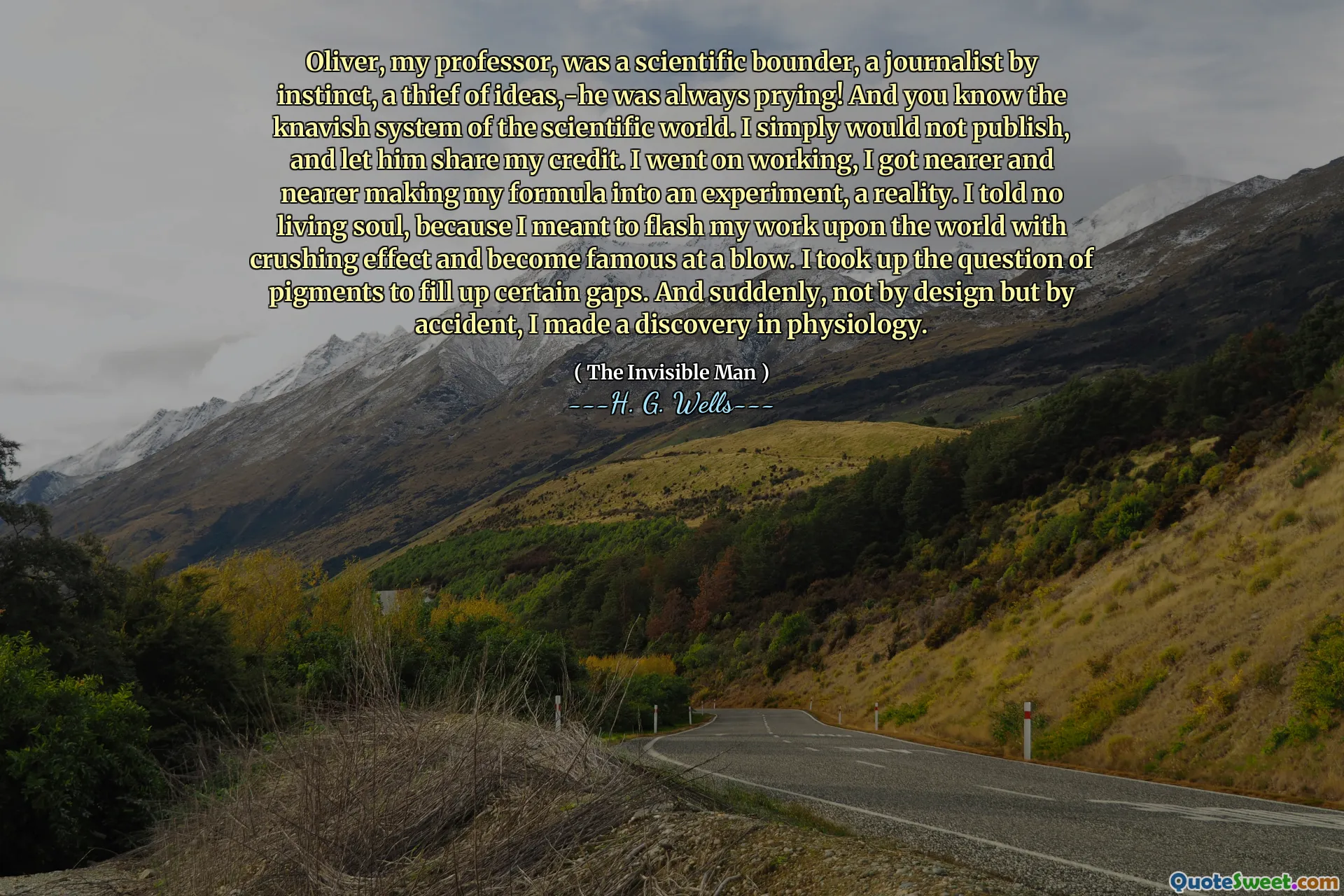
Oliver, my professor, was a scientific bounder, a journalist by instinct, a thief of ideas,-he was always prying! And you know the knavish system of the scientific world. I simply would not publish, and let him share my credit. I went on working, I got nearer and nearer making my formula into an experiment, a reality. I told no living soul, because I meant to flash my work upon the world with crushing effect and become famous at a blow. I took up the question of pigments to fill up certain gaps. And suddenly, not by design but by accident, I made a discovery in physiology.
In H.G. Wells' "The Invisible Man," the protagonist expresses his frustration with the scientific community, particularly towards his professor, Oliver. He views Oliver as someone who scavenges for ideas and is always intrusive, making it clear he does not want to share credit for his groundbreaking work. This fuels his determination to keep his findings secret while he strives to transform his theoretical formula into a tangible reality.
As he diligently continues his research, he unexpectedly stumbles upon a significant physiological discovery. This unintentional breakthrough occurs while he is investigating pigments, highlighting how innovation can arise from unforeseen avenues when one is deeply engrossed in their work. The character is driven by a desire for fame and recognition, which he hopes to achieve through the impact of his future revelations.











